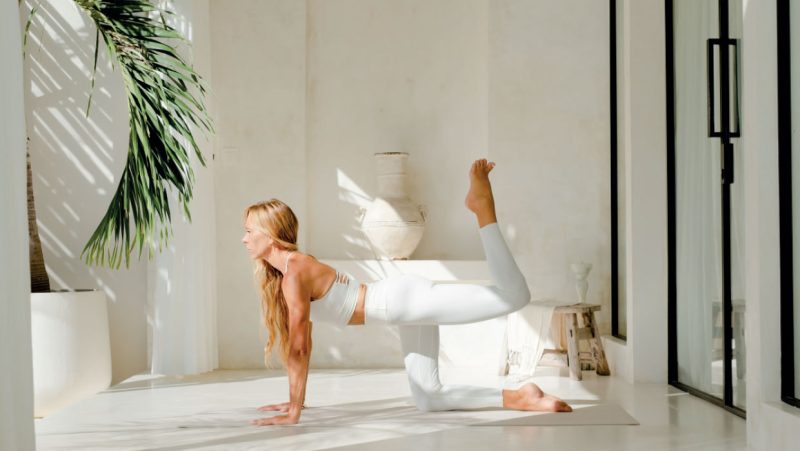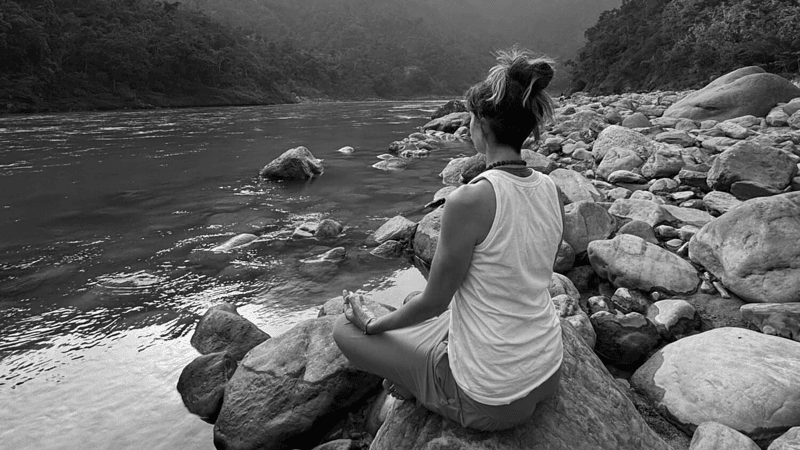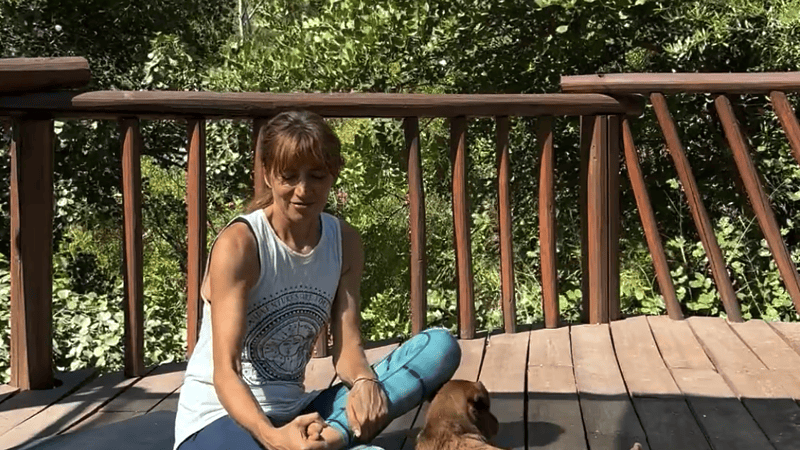
5 Lessons To Take Off The Yoga Mat And Into Your Life
Discovering Deeper Wisdom on and off the Mat - By Madeleine Arena
Reading time: 4 minutes
So often in the yoga world, especially online, the focus is on the physical aspects of the practice. Whether the asana shapes you see on Instagram or the Vinyasa flow at your local studio, it can be easy to loose sight of the subtler lessons this wonderful practice can teach us.
Don’t worry, you don’t need to become a philosophy nerd to reap those deeper benefits: yoga asana practice can be both a mirror and a training ground. The way we respond to what’s going on in our body and in our practice can translate beautifully into our lived experience. It’s in bringing mindful awareness into what you’re doing that you can begin to tap into those powerful lessons, both on and beyond the mat*.
Of course, we all have our own unique relationship to our practice, and some of us will gain different insights than others. I encourage you to tune into your own Self as you practice and observe what comes up for you.
In the meantime, perhaps my experience can inspire yours–here are 5 lessons my asana practice teaches me, first on and then off the mat:
- Listen Inward – Your Body Always Knows.
Whether you’re being guided through a sequence or are flowing freely on your own, there are moments when something just doesn’t feel quite right. Perhaps the strict alignment your teacher is cueing feels wrong in your body, or maybe you sense a strain that goes beyond the natural stretch of the muscle. Or maybe you simply observe that your strength and balance just doesn’t seem to be there today, even though they were yesterday.
Whatever you notice, practice holding space for it rather than dismissing it. In a way, we are constantly communicating with our body in our physical yoga practice, and a deeper layer of that is learning to hear what it’s telling us, and to honour that. Our bodies hold the wisdom of the universe within them, and it’s when we begin to tap into that wisdom that both our practice and our lives start feeling more peaceful and aligned.
- Discomfort Is Temporary And You Are Resilient.
I think we can all agree that a physical yoga practice often brings some level of discomfort with it. Whether it’s those last few breaths in plank pose or the intensifying sensation of a particular asana, there are moments in which we are tempted to quit. And don’t get me wrong, sometimes it’s important that we do quit (see the point above) – however, oftentimes it’s just our minds shying away from discomfort.
As we learn to breathe through those sensations and respond to ourselves with gentle reassurance that we are capable and that it won’t last forever, we build resilience. In this human experience we will necessarily be faced with things that are difficult and uncomfortable, and the most empowering thing we can do for ourselves is remember that we have the ability to do hard things, and to grow that mental muscle.
- Growth Doesn’t Require Big Leaps – With Small Consistent Steps, You Will Get There.
So many of us get in our own way in life by expecting things to be perfectly aligned or figured out before moving forward – our pesky old friend perfectionism. The thing is, this is a misperception by our own ego, a coping mechanism in the effort to keep us safe by convincing us that it’s actually possible to get to that perfect place – which it isn’t. And once again, our asana practice blatantly shows us that.
Nobody just stands on their hands or touches their feet to their head the first time they step onto the mat. Whatever the goal may be, we all start at the beginning, and must leave room for imperfection and learning if we are to grow. Otherwise, we’ll just never even get started. It’s when we allow ourselves to go step by step that we build balanced momentum and motivation as we discover that each one gets us a little bit further, no matter how small.
- Gentle Compassion Moves Us Further Than Harsh Forcefulness.
Some people may believe that taking consistent steps requires strict dedication and rigid discipline, and I will never claim to own the truth. However, in my experience, moving through life with such an unyielding perspective is not sustainable in the long term. This is why people experience anxiety and burn-out – eventually, our humanity peeks through the cracks.
On our yoga mats, we can observe a similar dynamic: of course you can constantly push yourself and follow a rigorous training plan regardless of how you feel at any given moment, but I believe that if you do that, sooner or later you will crash. You will sustain an injury, or maybe you will loose motivation all together. I know this because this was me during the 10 years I battled with an eating disorder. What I learned on the journey to recovery and experienced again when I started practicing asanas is that compassion and love move us further than hatred and force ever will.
When we are restricting ourselves, pushing ourselves beyond our limits and ignoring our internal voices, we are not moving from love. And we will eventually wear ourselves down. I’m not saying we should never be disciplined, but I am saying that that discipline should come from a place of self-love, not self-loathing. And that that discipline must include a flexibility for life – it’s when we face ourselves with kindness and respect that we can build a practice and a life that is balanced, enriching and sustainable.
- Your Experience Will Fluctuate, And That’s Ok.
In Yoga philosophy, one of the core beliefs is that attachments are what create our suffering. And I believe that more often than not, it’s not the attachments to material items or even people that most gets in our way, but our attachments to the way we want things to be. And when things turn out differently, we are upset. In that way, learning to practice acceptance of what is is one of the most powerful things we can do towards our sense of peace and contentment in life – and our yoga mat is the perfect practice ground.
Just like nature, our internal systems are in constant fluctuation, and so is our outer world. Some days your body might be too tired for a long, arduous practice, even though you wanted to work on those handstands. Or maybe after an injury or the birth of your child your body never quite returned to its previous state, and now some poses just aren’t accessible or simply no longer feel good.
As much as we might wish to have linear progress every day until the end of our days, that’s just not realistic – whether on the mat or off of it. And just like in nature, we can learn to not only accept that, but to see the beauty in every season.
I hope these lessons inspire you to get on your mat, and treat your practice like an exploration – an adventure on which you get to connect with and learn about yourself, and plant the seeds within that will let you bloom without.
*commission earned from this link.





